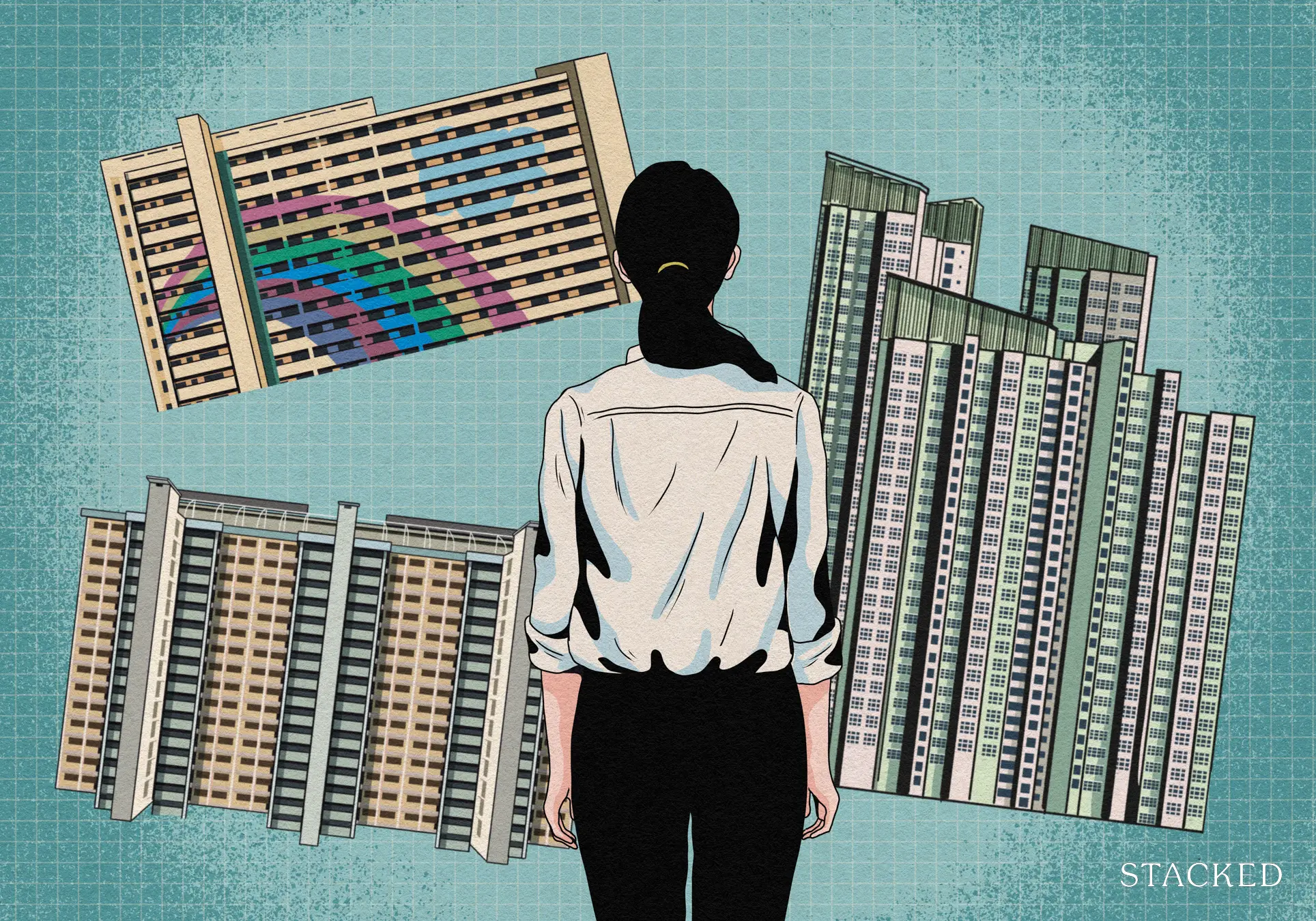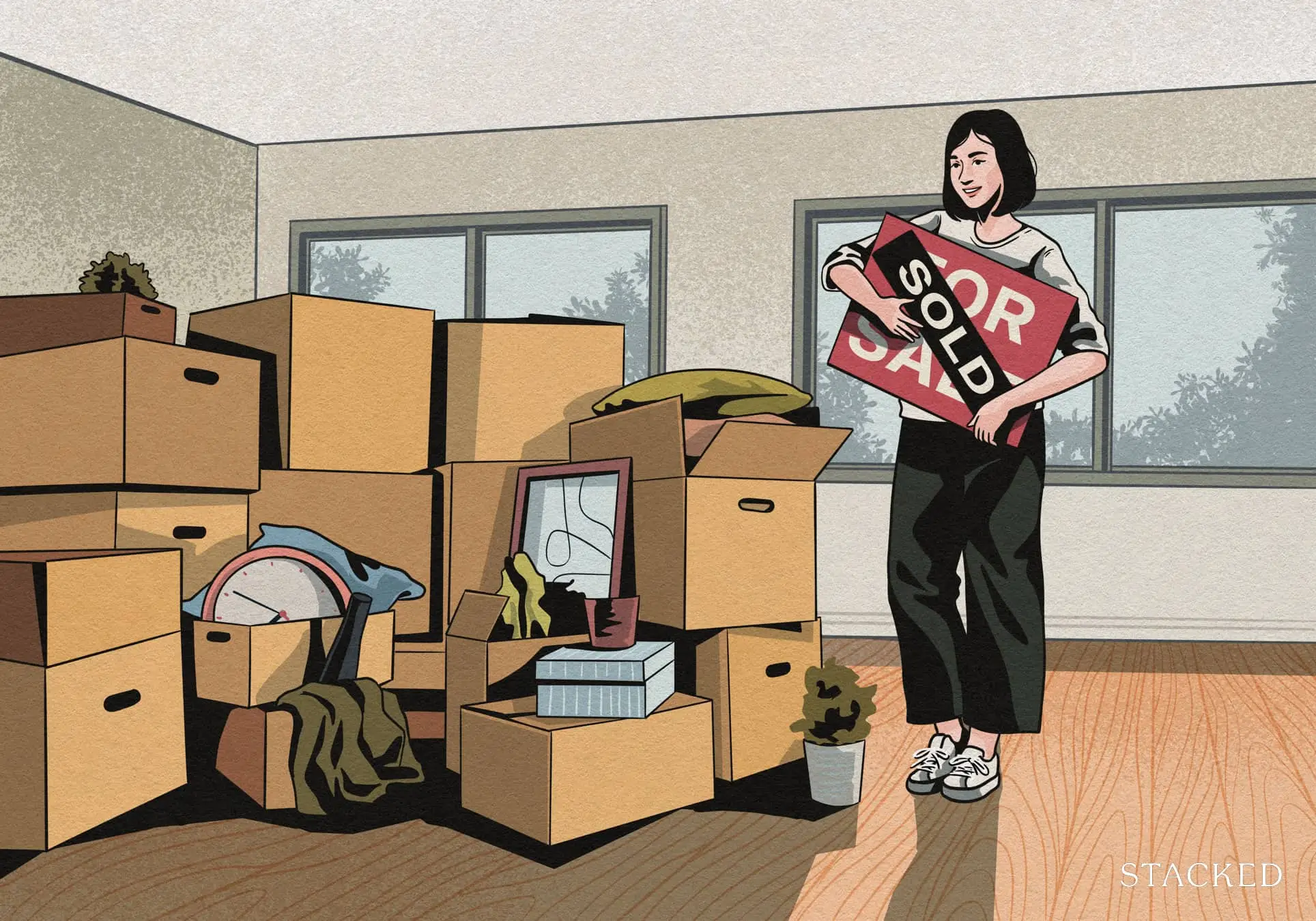Why Selling Your Own HDB Flat Isn’t As Easy As You Think: 7 Hidden Difficulties To Be Prepared For
June 8, 2024

A common misconception is that, when it comes to selling your own flat, the difficult part is the paperwork/transaction process. We don’t think so though – HDB has greatly simplified and streamlined these issues over the years, and with the new HDB listing portal, it seems that the other hard part of selling your home may be solved – the marketing and awareness.
However, selling a home is quite unlike most other DIY transactions you may have done before. It’s the things outside of the transaction process that make selling your own flat difficult; and here are some of the more annoying things to brace yourself for:
1. Fielding a lot of time-wasting calls
With DIY selling, it’s bad if you don’t get many inquiries, and it’s also bad if you get a ton of inquiries. In the event that your listing is popular, you may be fielding as many as 50 or 60 calls a week (and we’ve heard of some high-demand flats – like maisonettes or Tanjong Pagar-area flats, getting more than a hundred calls a week).
Of all these calls, you may find as little as a third of them are serious inquiries. Quite often, the other inquiries are from people who are also selling: some are realtors trying to sell other units near your block, and some are sellers trying to match their prices to yours.
You won’t be able to tell immediately who’s serious and who’s not, so you might waste anything from three to five minutes per caller. At a high volume, that’s a lot of time wasted, and certainly enough to annoy your boss (if you’re still working and trying to sell your place). Also, bear in mind that you need to keep track of who to call back.
And these are just for calls. You probably will get a higher proportion of people who will message you, and ask you the same questions even though you may have painstakingly provided all that information in the listing. There’s a lot of back and forth too, to arrange viewing times, and make sure that you can fit everyone into a schedule, which brings us to the next point.
2. Expect to burn your weekends and evenings until a serious buyer is found
Most people like to view properties outside of office hours. This means you need to be prepared to rush to your unit after work, to handle viewings with possible buyers. You may also find your weekends wasted: several sellers have found themselves staying home from Friday to Sunday because of viewings, sometimes for months on end.

The most aggravating part though, is that non-serious inquiries also turn up for viewings. You can’t always tell if the prospect you’re rushing to open your home to at 6 pm after work, and maybe noon this Saturday, has any serious intent to buy.
You should also prepare your family for some disruptions in routine, as there are going to be occasional strangers traipsing through the house. Pets, by the way, can compound the issue: you may need to do a lot more cleaning and vacuuming (especially if it’s the shedding season) and arrange to have the pets be out for a walk when home viewers come.
3. Speaking of arranging viewings, some people will not show up
You’ve confirmed with them three times that they’re coming, you took a Grab back from work to rush and clean the house in preparation, you’ve cancelled a dinner appointment… and then the prospects decide not to show up. If they call, it might happen about five minutes before they were meant to arrive.
It’s a waste of time and money, but it does happen – and to some sellers, it could happen multiple times. There’s nothing you can do about this, you just have to accept it.
4. You’ll need to develop thicker skin for the purposes of viewings
People are going to say hurtful and nasty things about your home. Without the realtor as a go-between, expect to hear people talk about how awful your flooring or curtains look, how ugly your bedroom is, and how anyone could even live with a kitchen like yours.
People will also comment on the cleanliness of your home, or any weird odours they detect. This could happen regardless of how many hours you spend cleaning, so be ready to shrug it off.
Some home viewers have tact; but many others do not. You’ll find a good number that have no filter, and will say such things out loud. Remember they’re prospective buyers and not your guests, don’t get defensive and argue; just recommend alternatives that the property allows. You’ll also have to put your emotions aside because, sometimes, it’s the rudest and most condescending ones that happen to make the best offer.
5. Buyers who keep pressing for more changes, in the process of closing
Buyers may want you to fix or even improve certain things before they buy; so you will be asked questions like “Will you change the air-con system if we’re buying?” That’s run-of-the-mill stuff. But you’ll also encounter buyers who – every time you think the deal is sealed – will keep pulling back at the last minute to ask for just one more thing.
The requests may start off being small – like leaving your dryer/washer for them – and slowly increase to pricier things, like asking if you’ll retile an entire part of the kitchen. The nasty part is that these buyers can seem serious and genuine; enough that you dismiss other, less demanding prospects to deal with them.
You’ll need to decide where you’re going to draw the line, and be prepared to find new buyers if necessary. Otherwise, you might incur the cost of a whole round of renovations before you finally sell.
6. Clueless buyers with no In Principal Approval, and who have zero desire to understand the process
There’s a certain type of buyer who has no time or interest in the transaction process, but still wants to buy without any help*. These types are sometimes easy to identify, as they tend to ask questions you can’t possibly answer (e.g., in one case we know of, the prospective buyer wanted the seller to find out if the buyers had enough CPF to buy).

Dealing with this type of buyer is hazardous. There’s a higher risk of bad things happening, like the buyers suddenly backing out because they miscalculated their available funds. Even less serious mistakes on their part – such as not realising they’re ineligible to buy – can end up being a time-waster. You could be weeks into a negotiation before they come back to you with the bad news.
In any case, the new listing portal aims to solve this, as you need valid eligibility letters before you can contact the seller.
7. Listings can be more of a hassle
To be blunt, the property portal scene is heavily biased toward supporting realtors (who are, after all, their biggest customers). Most of the leading portals simply don’t allow you to list without a CEA license; so this can leave you stuck with only the HDB resale portal, and a mix of smaller ones that just allow any individual to list. This isn’t great for marketing your unit.
(This was why, in our previous article, we said it would be better if HDB made it mandatory to list all the resale flats on their portal: this would at least ensure a big crowd uses and sees the HDB portal. This would spare individual sellers the need to engage realtors, to list on bigger portals).
Property portals aside, other methods of drumming interest – such as using your own social media, or the old-school “stick it at the bus stop”* method – are time-consuming. But if you don’t put effort into it, you could end up with a smaller prospective pool of buyers, and weaker offers.
*Illegal by the way, even though it keeps happening
So while it’s not impossible to sell your flat, the intricacies of doing so will mean realtors are still needed. Unless you can spare the hours to deal with all of the above, or you have a flat with a location and price that “just sells itself”, you may want to heavily consider before doing it on your own.
For help or inquiries about this, you can also reach out to us at Stacked, or follow us for updates on the property market.
At Stacked, we like to look beyond the headlines and surface-level numbers, and focus on how things play out in the real world.
If you’d like to discuss how this applies to your own circumstances, you can reach out for a one-to-one consultation here.
And if you simply have a question or want to share a thought, feel free to write to us at stories@stackedhomes.com — we read every message.
Ryan J. Ong
A seasoned content strategist with over 17 years in the real estate and financial journalism sectors, Ryan has built a reputation for transforming complex industry jargon into accessible knowledge. With a track record of writing and editing for leading financial platforms and publications, Ryan's expertise has been recognised across various media outlets. His role as a former content editor for 99.co and a co-host for CNA 938's Open House programme underscores his commitment to providing valuable insights into the property market.Need help with a property decision?
Speak to our team →Read next from Property Advice

Property Advice We Can Buy Two HDBs Today — Is Waiting For An EC A Mistake?

Property Advice I’m 55, Have No Income, And Own A Fully Paid HDB Flat—Can I Still Buy Another One Before Selling?

Property Advice We’re Upgrading From A 5-Room HDB On A Single Income At 43 — Which Condo Is Safer?

Property Advice We’re In Our 50s And Own An Ageing Leasehold Condo And HDB Flat: Is Keeping Both A Mistake?
Latest Posts

New Launch Condo Reviews River Modern Condo Review: A River-facing New Launch with Direct Access to Great World MRT Station

On The Market Here Are The Cheapest 5-Room HDB Flats Near An MRT You Can Still Buy From $550K

On The Market A 40-Year-Old Prime District 10 Condo Is Back On The Market — As Ultra-Luxury Prices In Singapore Hit New Highs



































0 Comments